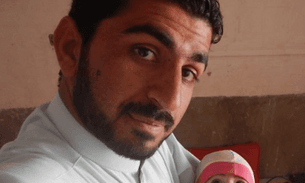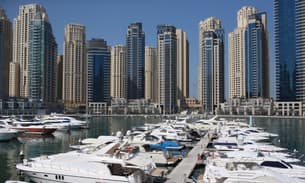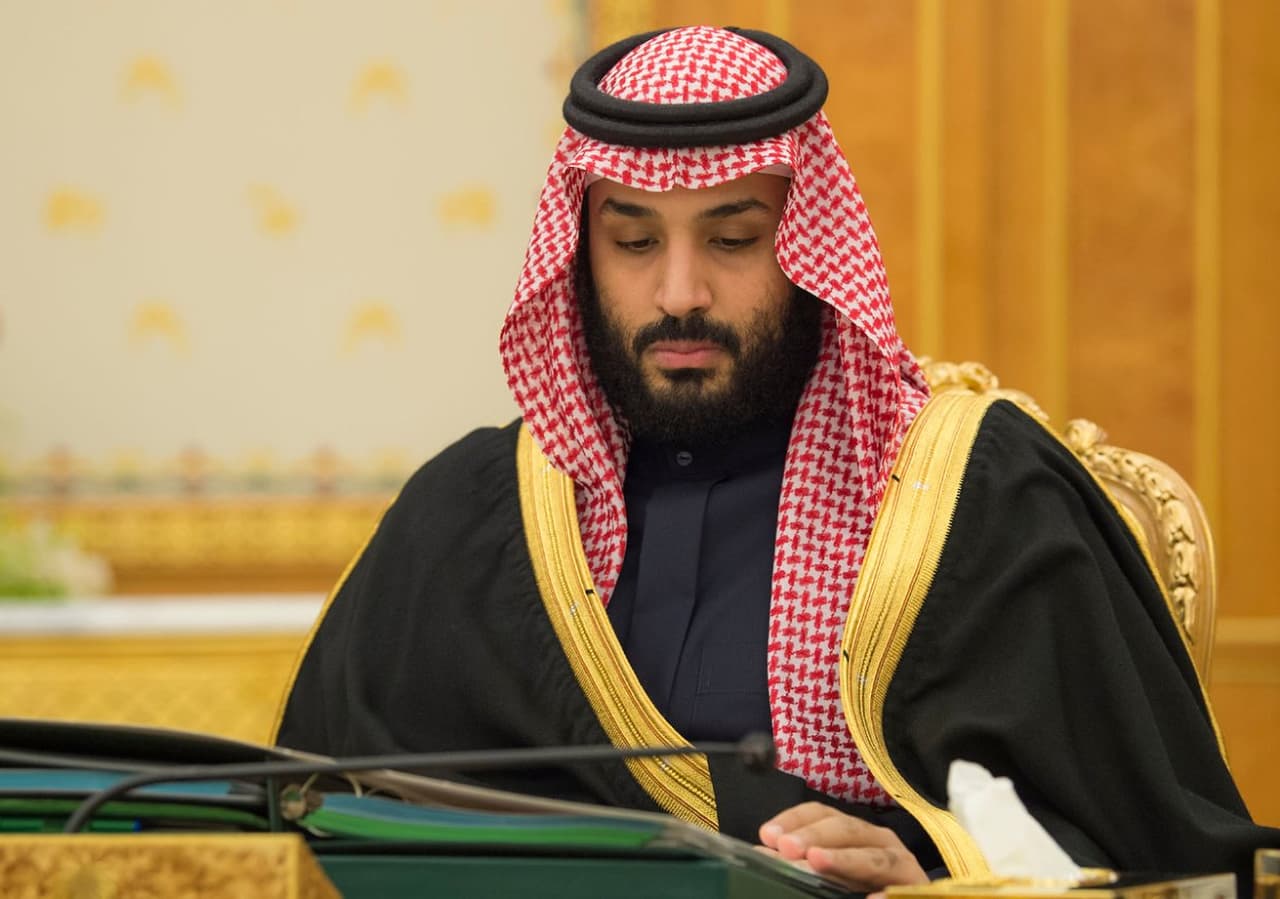
Foreign Office diplomat on "leave" at Saudi Crown Prince's PR firm
A senior British diplomat is working for a firm at the heart of a multimillion dollar Saudi public relations offensive whilst still employed by the Foreign Office (FCO), the Bureau can reveal. The news comes as the Crown Prince of Saudi Arabia prepares for a trip to London, where he will be greeted by demonstrations against the civilian death toll in Yemen caused by Saudi bombing.
Jolyon Welsh, whose roles at the FCO have included Deputy Director of Middle East, and Head of Government to Government Contracting, was given special unpaid leave in 2014 to become a senior director of Consulum. This London and Middle East-based communications firm was founded by former executives from the scandal-hit agency Bell Pottinger. He has remained there ever since.
Consulum’s client list includes Crown Prince Mohammed Bin Salman (widely known as MBS), Saudi Arabia’s de facto ruler, whose state visit to the UK starts this Wednesday amid controversy over his country's military campaign in Yemen. The United Nations said in September 2017 that airstrikes by the Saudi-led coalition were the “leading cause” of civilian casualties in the Yemen war.
The Bureau has learned that Welsh has had at least some involvement with the Saudi account. The fact that a diplomat at his level has been allowed to take up such a role underscores the close ties between London and Riyadh, as permission to work for a firm is only given if “directly and closely related to a specific FCO area of interest and is in line with our strategic priorities.”
The revelation raises fresh questions about revolving doors between Whitehall and PR firms acting for foreign governments. Lloyd Russell Moyle MP is a member of Commons committee on Arms Export Controls. He told the Bureau: “It's one thing for the Foreign Office to provide political cover for the Saudis' assault on Yemen, which defies all notions of proportionality and which I believe in several cases constitutes war crimes. It's quite another for the FCO to have lent its staff to a company working for the Saudis’ PR operation.”
Got a Story?
We welcome tip-offs from the public and we always protect our sources
Find out how to work with us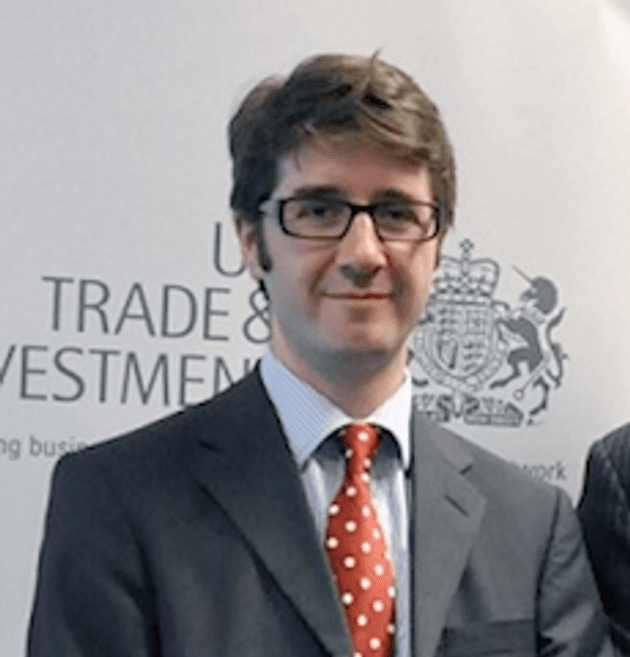 Jolyon Welsh, senior Foreign Office mandarin, on loan to Consulum
Photograph: UKTI
Jolyon Welsh, senior Foreign Office mandarin, on loan to Consulum
Photograph: UKTI
The FCO told the Bureau that there are now 34 officials, such as Welsh, who are working in the private sector while maintaining their Foreign Office status. The Special Unpaid Leave (SUPL) scheme, which allows diplomats to work at senior levels in outside companies for years at a time, is a different programme from the short-term secondments which the FCO has long used to give employees experience of industry sectors. Those on SUPL are paid by their private employers but remain FCO employees and can return to the department afterwards.
The Foreign Office gave permission to 14 people to work in the private sector on Special Unpaid Leave (SUPL) in 2014, eight in 2015, 14 in 2016 and five in 2017. Five have since returned to the Department. The FCO would not say how many were involved in work which was related to advising foreign governments.
The rules governing this are vague; an FCO statement simply said diplomats were prohibited from doing jobs that “might in any way affect or impinge upon employees or their work in the Diplomatic Service”. One former diplomat told the Bureau that the system was “really unhealthy”. When the Bureau put the Welsh example to the FCO, a spokesperson said “we are confident there is no conflict of interest in this case”.
“There is a clear conflict here”, said Andrew Smith, media co-ordinator for the group, Campaign Against Arms Trade. He added: “This placement is totally inappropriate and is symptomatic of the cozy and compromising relationship between Whitehall and human rights abusing regimes like the one in Saudi Arabia.”
 BAE is hoping to clinch a £10 billion deal with Saudi for more Typhoon fighter bombers
Photograph: BAE Systems
BAE is hoping to clinch a £10 billion deal with Saudi for more Typhoon fighter bombers
Photograph: BAE Systems
The UK has sold billions of pounds worth of weapons to the Saudis during the war, and is looking to clinch a £10bn order for more Typhoon fighter bombers. London now wants to deepen the trade relationship further, in the hope that the oil-rich Gulf state’s ambitious economic plans can provide some rare good news for British companies, amid gloomy post-Brexit forecasts.
But as Downing Street readies a warm welcome for the Crown Prince on 7 March, the Metropolitan Police are preparing for street protests. Harrowing images of the aftermath of airstrikes conducted by the Saudi-led coalition in Yemen have started to inflame public opinion against the Kingdom, creating legal headaches for its allies. Several European countries have suspended arms sales to Saudi Arabia as the documentation of civilian casualties in Yemen has piled up, and Labour leader Jeremy Corbyn MP has called for Britain to do the same. Last week, US Senators started pushing for a vote on withdrawing support for the Saudi-led coalition.
The Bureau newsletter
Subscribe to the Bureau newsletter, and hear when our next story breaks.
Meanwhile, the global investor community has been spooked by the 32 year-old Crown Prince’s sudden arrest of hundreds of businessmen and fellow royals in November 2017, ostensibly as part of an anti-corruption campaign.
Insiders say Riyadh is on a mission to get people talking about reform and opportunities, rather than civilian deaths and the rule of law. The Kingdom has hired an army of Western PR firms and consultants, including several British ones.
The message being circulated by the Saudi regime is that MBS is making the country less hardline and more liberal. The Kingdom is emphasising measures such as the plan to lift the ban on women driving, in June 2018. Economic issues, not difficult topics like Yemen, are the favoured focus of conversation.
Analysts say that the Crown Prince is taking real steps on economic liberalisation, even if he is cracking down on political dissent. But the picture of Bin Salman as a dedicated reformer is somewhat complicated by revelations about his own personal spending. Recent purchases have reportedly included a yacht worth an esimated $500m, a Versailles-style castle in France, and a Leonardo Da Vinci painting.
A former employee of one of the British PR firms likened representing a client like Saudi Arabia to being a defence lawyer. “You have to work to get the client out of trouble”, the employee said, and promote "the idea that Saudi Arabia is becoming Switzerland.”
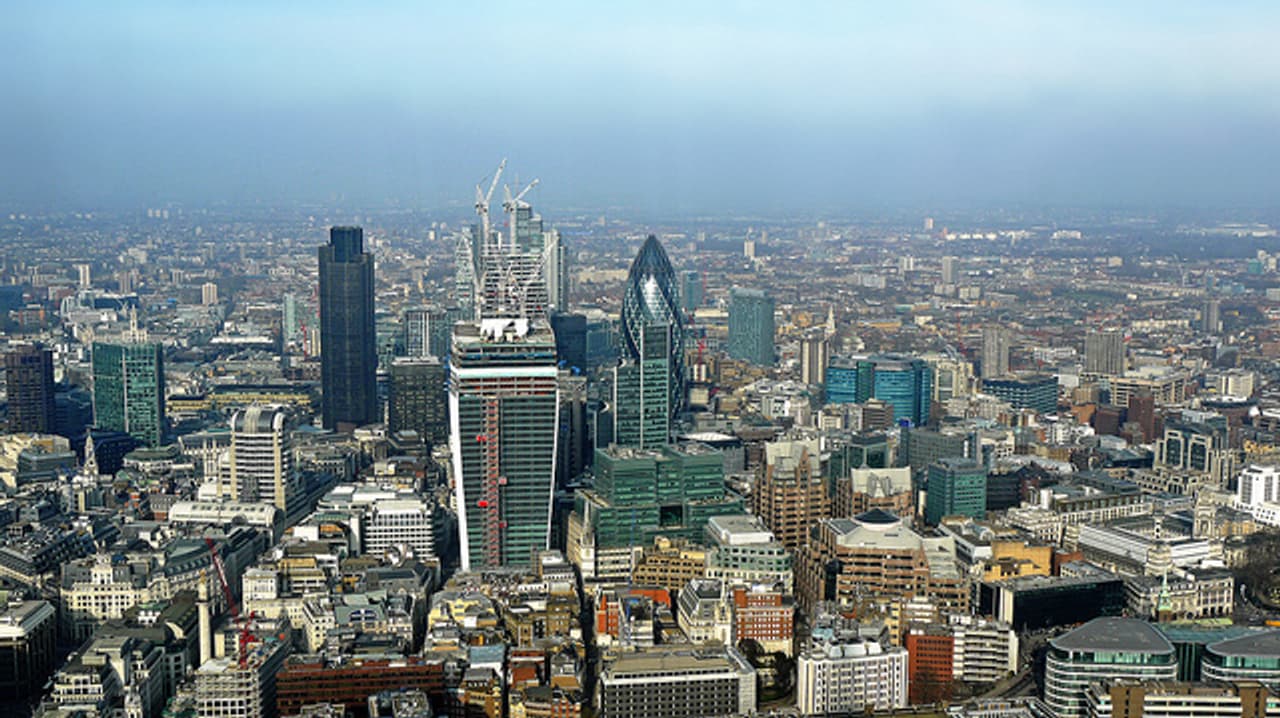
British firms, Saudi influence
Consulum has been working on MBS's projects since at least 2016. The firm, whose London headquarters are in Berkeley Square, was set up in 2013 by former Bell Pottinger staff members, Tim Ryan and Matthew Gunther Bushell. It also has offices in Bahrain, Qatar and the UAE.
Consulum describes itself on its website as providing “sophisticated communications programmes that shape awareness, guide opinion and enhance understanding”. Industry insiders say the firm is known as being professional and has none of the reputation for risk-taking that affected Bell Pottinger.
But like Bell Pottinger, Consulum has attracted attention for the profile of its clients. The firm was criticised after it emerged in 2013 that it was working for the authoritarian government of Bahrain. Consulum’s other clients include the governments of Djibouti and the UAE. It is not clear how many contracts the firm has in Saudi Arabia, but it is evident from press releases that it is working for MBS’s charity, the Prince Mohammed Bin Salman Bin Abdulaziz Foundation or MiSK.
MiSK is a non-profit that runs education and skills programmes for Saudi youth. It also pushes Bin Salman’s message of reform and progress out on to the world stage, hosting a breakfast panel at this year’s World Economic Forum in Davos.
Two weeks after the arrests of hundreds of businessmen and tycoons began in November 2017, Misk ran a conference in Riyadh on education and “the digital future”. The conference was addressed by Bill Gates (pictured above speaking at the forum), even as his Saudi business partner Prince Al Waleed Bin Talal was being detained across town, at the Ritz Carlton.
According to the online journal Intelligence Online, Consulum also handles communications for the Saudi Arabia Military Industries company, a venture owned by Saudi’s Public Investment Fund that is seeking to promote domestic defence manufacturing.
Last month, IRIN News revealed that one of the other British firms involved in the Saudi PR effort is Pagefield Global Counsel (PGC), which specialises in crisis management. The Saudis came up with a humanitarian plan for Yemen under growing pressure about the dire situation there, and PGC has been helping them publicise this.
Like Consulum, Pagefield has good connections with the UK government. Liam Parker, the Foreign Secretary Boris Johnson MP’s former special adviser, walked straight out of Whitehall into PGC’s sister company, Pagefield Communications, last September.
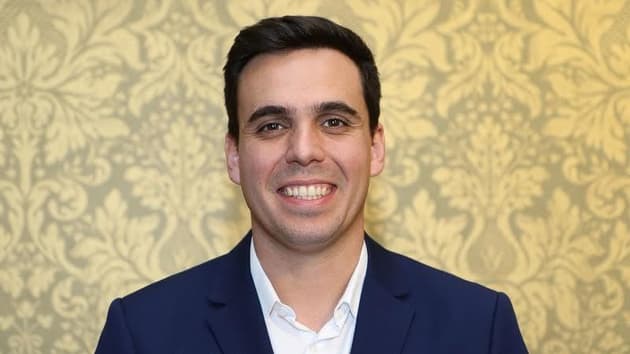 Liam Parker, former director of political communications to Foreign Secretary Boris Johnson MP
Liam Parker, former director of political communications to Foreign Secretary Boris Johnson MP
While Parker was his director of political communications, Boris Johnson was involved in a political row about Saudi Arabia and also visited the country, but Parker told the Bureau he never advised the Foreign Secretary about Saudi Arabia. He also said he has nothing to do with Pagefield’s work for Saudi.
Pagefield confirmed its work for the Saudis to the Bureau, but downplayed the idea that they were shaping the narrative. “PGC is one of a large number of agencies assisting the Kingdom of Saudi Arabia on the communications associated with multi-billion dollar humanitarian aid plans”, a Pagefield Global Counsel company spokesman said.
Another British beneficiary of Saudi spending on outreach is Martin Sorrel’s WPP group. The global megafirm has contracts with the Saudis through US subsidiaries such as Hill & Knowlton and Burston Marsteller. The London agency Freuds meanwhile helped launch MBS’s economic reform agenda, Vision 2030, though a spokesman said they are no longer working on that account.
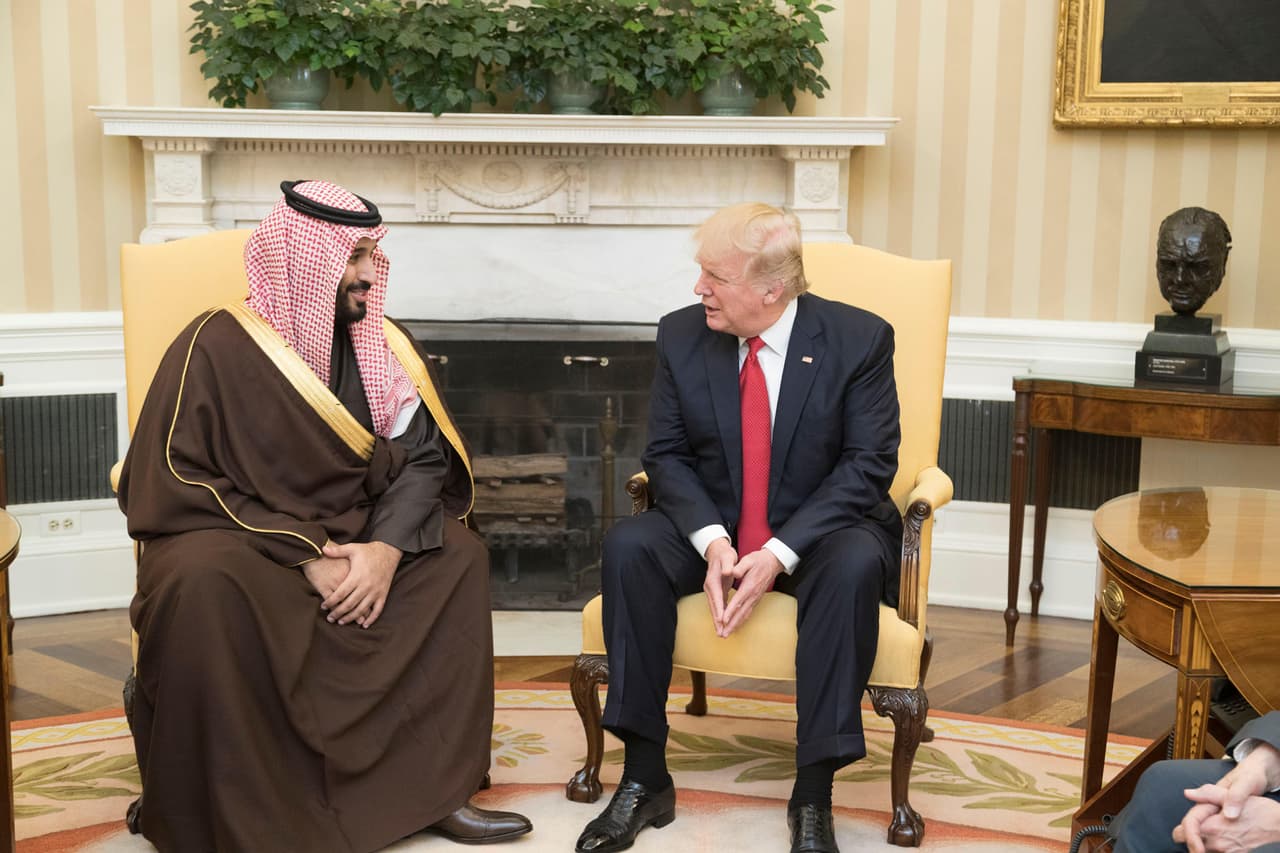
The international push
Some of the PR firms’ work is aimed at a domestic audience, but international public opinion is increasingly important to the Saudis. They have been spending on lobbying and consultancy firms for many years, but observers say the effort took on a new energy and sophistication with the ascent of Mohammed Bin Salman. The push started in 2015 when his father took over the throne and was consolidated in June 2017 when MBS was named Crown Prince.
According to an analyst close to Saudi circles, the Saudis decided in mid 2016 that they needed to be more active in influencing public opinion, not just policymakers. “They didn’t use to care about PR, they thought the relationship with the US was rock solid, then they realised it wasn’t and tried to do something about it”, the analyst said. “They came to realise there was a game to be played and they weren’t playing it.” Ten new Saudi PR contracts have been registered with US authorities since then, worth many millions of dollars.
The push to influence the global conversation has taken other forms. In 2017, the Saudi Ministry of Culture set up a ‘Center for International Communication’ to “facilitate relationships with the global media community”, which has been bringing more foreign journalists to Riyadh.
The Bureau understands that a US PR firm called Apco Worldwide has been working with the Saudi Center for International Communications to brief journalists on topics such as the anti-corruption crackdown.
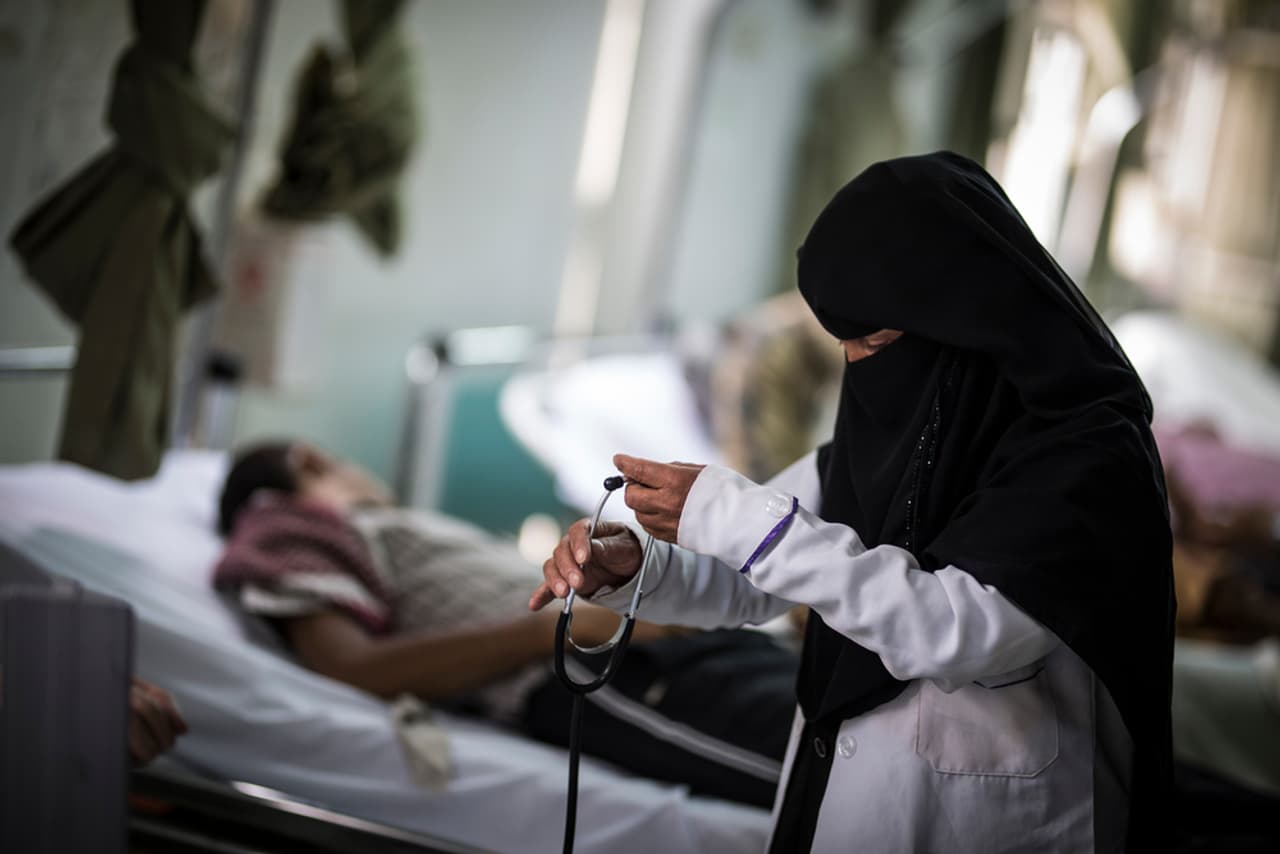
The war in Yemen
Even more challenging to spin than the anti-corruption programme is the war in Yemen. Yemen’s instability and hunger crisis predated the Saudi-led intervention in 2015, but the coalition’s warplanes and de facto naval blockade have caused huge suffering and made it more difficult to control an outbreak of cholera which infected a million Yemenis.
The Yemen war is complicated - and the Iran-linked Houthi militia, which the Saudis are trying to force back - are guilty of plenty of violations of humanitarian law themselves. But the evidence that the Saudi-led coalition is also doing so is stark and compelling. When a UN panel of experts investigated 10 airstrikes by the Saudi-led coalition on civilian areas in 2017, they found that they had caused 157 deaths.
The Saudis have had various strategies for managing the negative PR from Yemen. Some are crude – in 2016, UN Secretary General Ban Ki Moon strongly implied they had threatened to withdraw humanitarian funding if they were not taken off the body’s annual list of violators of the rights of children.
Some are more subtle. Last summer, ahead of Trump’s trip to Riyadh, US lobbying firms circulated ‘fact sheets’ about the war in Yemen which emphasised the care Saudi targeters took not to kill civilians. The UN Panel of Experts by contrast found that “Measures taken by the Saudi Arabia-led coalition in its targeting process to minimize child casualties, if any, remain largely ineffective.”
A former employee of one of the PR firms working for Saudi summarised the ‘lines’ he would be given to push as: “‘these are unconfirmed reports for the moment’, ‘we’re working with the Americans’, ‘we’ll investigate the situation’, ‘it’s a shame that civilians have been hit but you have to look at the bigger picture’”.
The stakes for the Saudis in this PR battle are high. Germany, Norway and Holland have already moved to suspend arms sales to the Saudi Arabia-led coalition because of the Yemen war and the UK could follow if Labour is elected. Dave de Roches, an associate professor at the National Defense University in Washington, thinks that even US arms sales to Saudi could be vulnerable. “The Saudis are one bad image coming out of Yemen away from moving three senators, then you’ve got a problem,” he said. “Foreign policy is an elite concern, but the Yemen war has the possibility to bring the emotional to the forefront and then they’ll lose across the West.”
The humanitarian situation in Yemen - where eight million people are now on the brink of famine - has also created pressure on the Saudis. Whilst the Houthis share a large part of the blame, Riyadh’s severe restriction of the movement of goods coming in to Yemen, which currently relies on imports for almost everything, contributes to the soaring price of food and medicine.
When the Saudis blocked even humanitarian supplies from coming in to the Houthi-controlled port of Hodeida, in response to a missile strike on Saudi Arabia in November 2017, it provoked a strong international reaction. Even staunch allies like President Donald Trump called for the blockade to end.
However, humanitarians say they have noticed a big effort to change the narrative on the humanitarian situation. First the Saudis allowed humanitarian supplies back through Hodeida, then they announced that they would deposit $2bn in the Yemeni Central Bank, and then, in February 2018, launched a much-trailed humanitarian action plan for Yemen, which included more funds. The plan was announced in a five star hotel in Riyadh, where members of the press were served an assortment of cakes.
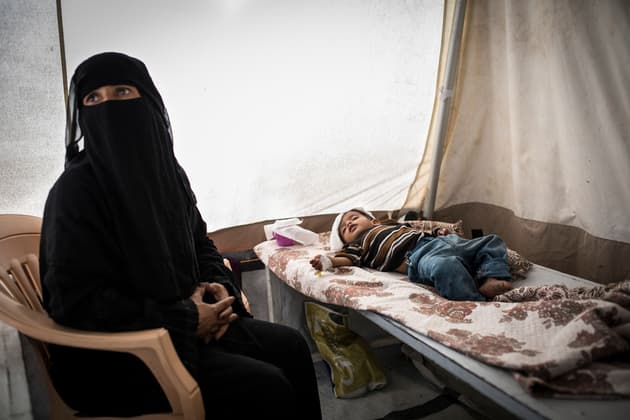 A mother tends her child in a hospital in Yemen in winter 2017
Photograph: Florain Seriex/MSF
A mother tends her child in a hospital in Yemen in winter 2017
Photograph: Florain Seriex/MSF
Humanitarians have welcomed the new funds, assuming they arrive, and the easing of some restrictions on Hodeida, but say that the fundamental problem of the passage of essential goods into Yemen being obstructed hasn’t been addressed. The NGO International Rescue Committee has even described the plan as a “war tactic”.
“It would be a grave mistake for donors to think this funding is sufficient for Yemen, and worse for the international community to mistake an isolated humanitarian initiative as restitution for the damages of the ongoing war”, said Suze Van Meegen from the Norwegian Refugee Council. “A contribution to Yemen is not a solution for Yemen – any confusion around this risks leaving Yemen with less international scrutiny.”
A spokesman for the Saudi-led coalition said their humanitarian operations were “critical to alleviating the suffering caused by the Iran-backed Houthis. This is undeniably the right thing to do for Yemen" and that their investment in long-term infrastructure projects shows "an enduring goal to support and enhance the economic and humanitarian situation in Yemen.”
In spite of uncertainty about the plan, Saudi Arabia is now under less pressure to do something about Yemen’s suffering than it was before. In fact, a draft Security Council statement put forward by the UK in February even praised the Saudi humanitarian efforts.
However, former International Development Secretary Andrew Mitchell MP recently described the Saudis humanitarian plan for Yemen as a “cynical PR exercise”. He told the Bureau he welcomed the Crown Prince’s visit and the reforms he has introduced within Saudi Arabia and that “British PR companies are fully entitled to take the Saudi riyal”. But Mitchell said the British media “shouldn't be deflected from holding the Saudi government to account” by public relations. He added that the media should continue to expose “the catastrophic and clear breaches of international humanitarian law which are taking place in Yemen”.
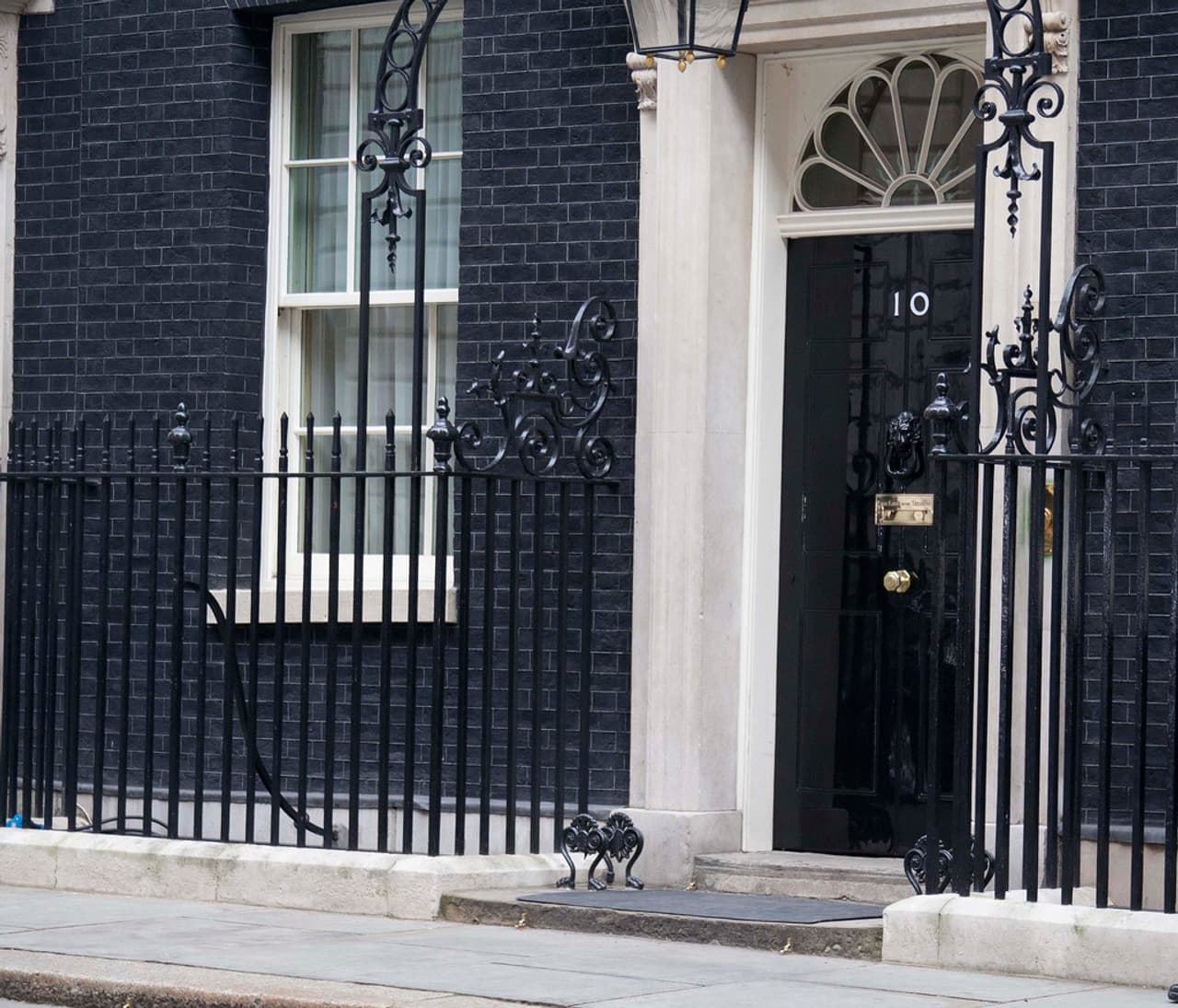
The British connection
The fact that some of the pressure is off Saudi Arabia will leave Prime Minister Theresa May in a less awkward position when Mohammed Bin Salman arrives in the UK on 7 March. The week before the visit, the Foreign Secretary (who had previously publicly accused the Saudis of stirring up proxy wars in the Middle East) himself penned a tribute to the Crown Prince in the Times newspaper, that hardly mentioned Yemen and which could have been written by one of the Saudis’ PR firms.
Downing Street is doubling down on the trade relationship with the Kingdom, even appointing a special envoy from the UK to the Saudi 2030 initiative, banker Ken Costa. The strategy of courting resource-rich Gulf countries has “accelerated” as a result of Brexit, according to one former diplomat.
“It’s about getting Gulf [countries] to invest in UK assets, infrastructure projects, leveraging the relationship to get UK companies in to the piece”, the diplomat said. “It’s a bit desperate.”
Peter Salisbury, a senior consulting Fellow at Chatham House, thinks the Saudi PR offensive is working, pointing to, among other things, the successful strategy of bringing more journalists in to the country. Recent columns have appeared in both the New York Times and the Washington Post extolling the virtues of MBS.
Salisbury says the Saudis managed a “clever and effective job of shifting the narrative that Saudi is a horrible conservative place, which was never the whole story. They’ve really been able to shift that to ‘Saudi is a country reforming under a young exciting dynamic leadership who shares liberal values with the west’, which isn’t the whole story either.”
He added: “The rebranding has worked.”
Header photograph, of Saudi Crown Prince Mohammed Bin Salman Bin Abdelaziz Al Saud, also known as MBS, seen during a cabinet meeting with members of government on January 2, 2018, in Riyadh, Saudi Arabia, via Balkis Press/ABACA/ABACA/PA Images


